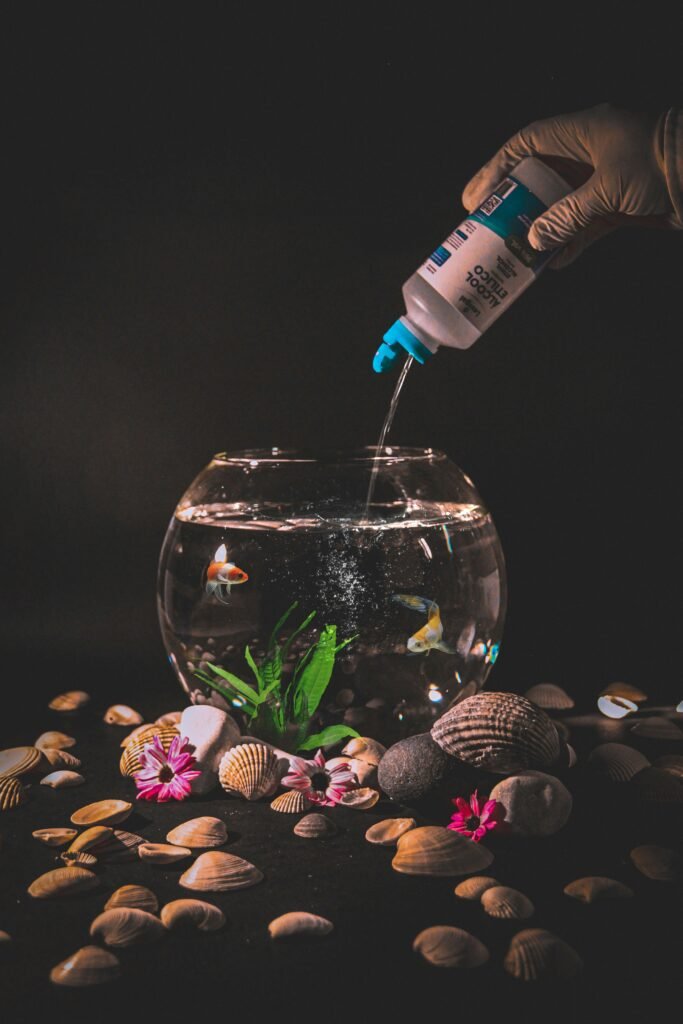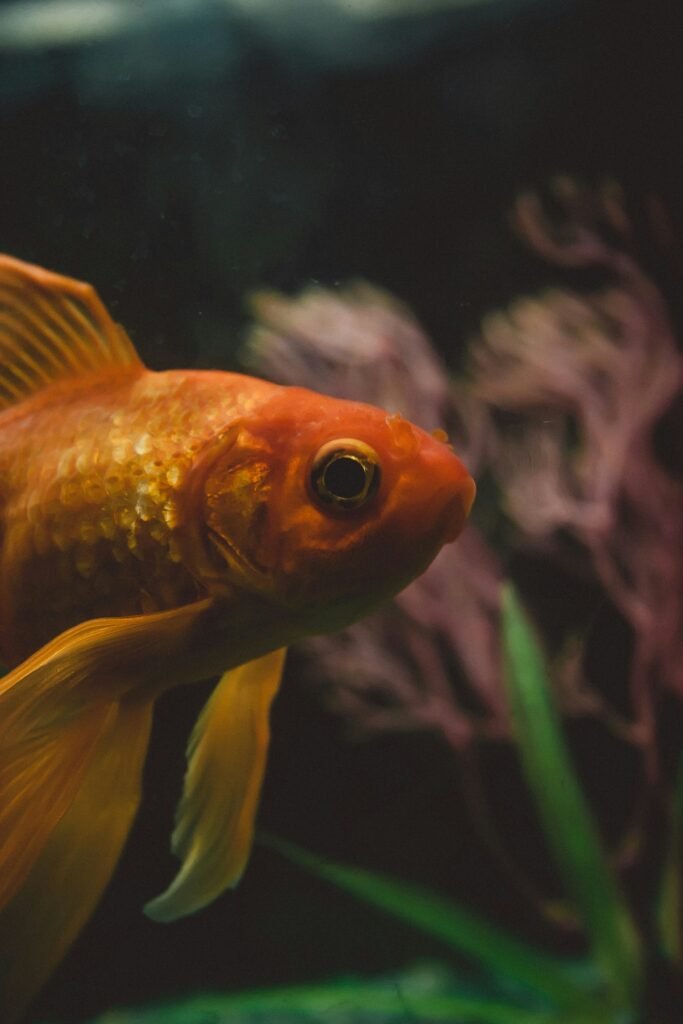Petting
Adding aquatic charm to your home, pet fish are easy to maintain companions. From colorful bettas to graceful tetras, these underwater wonders thrive in well-maintained aquariums. Explore the serene world of fishkeeping!
Reasons You Should Not Have an Aquarium
Aquariums can be engagingly beautiful with their serenity and colorfully alive sea life. However, beneath the surface of this lies a multitude of reasons that may make one reconsider the decision to keep an aquarium. From ethical considerations to the great commitment they entail, here are several reasons why an aquarium may not be the best choice for everyone.
Ethical Considerations
The first issue of concern when considering an aquarium is ethical: many fish and other sea animals are taken out of their natural environments, which causes environmental imbalance. Wild-caught fish have high mortalities at capture and during transportation; this can affect the reduction in natural populations as the aquarium trade exploits wild animal populations.
Even captive-bred fish are not completely cleared from various ethical issues. Breeding could sometimes involve practices like overbreeding or propagation of genetic defects in an attempt to create specific desired features. Further, a majority of aquarium owners provide too little care for proper living conditions and may experience a high level of stress for the fish.
Environmental Impact
Another major factor is the environmental impact an aquarium has on the environment. The process of gathering wild fish and coral has already caused the destruction of natural ecosystems that may not recover. In particular, coral reefs are very sensitive environments, threatened by changes in climate and pollution; removing coral for aquariums contributes to these problems.
Energy consumption by aquariums is considerable. Lighting, heating, and filtration systems all require electricity, adding to an aquarium's carbon footprint. Not to mention the water used by these facilities, which, in certain parts of the world, is in short supply.
Expensive to Operate
Setting up and maintaining an aquarium can be quite an expensive undertaking. The costs start from the tank, filtration systems, lighting, heating, substrate, decorations, down to the fish themselves. As the size or specialties in some aquariums-saltwater aquariums-go higher, so does the exponential increase in costs.
Apart from the initial investment, recurrent costs can be quite high: regular maintenance supplies, new parts and equipment, food, water treatments, and possible veterinary bills for diseased fish can all drain the wallet. These can be out of the question for those on a tight budget.
Time Commitment
Aquaria demands much time and labor in keeping them, such as regular water changes, equipment maintenance, feeding, and monitoring of water quality to keep the aquarium inhabitants healthy. Neglecting one or more of these responsibilities often leads to a decline in water quality and can have serious consequences in the life of fish: stress, illness, or even death.
For people who have to juggle busy schedules or other commitments, the time needed to adequately care for an aquarium may be more than they can realistically handle. The demands of aquarium maintenance can quickly turn what was intended to be a relaxing hobby into a stressful burden.
Risk of Disease
Fish are prone to many types of diseases, most of which are difficult to diagnose and treat. In an aquarium, diseases can spread quickly due to the confined environment, and treating a sick fish often requires specific knowledge and experience. Medications can also be costly and may not always be effective.
New fish added to the aquarium may carry with them some of the pathogens likely to affect the established fish. Quarantine procedures are essential yet rarely applied by amateur aquarists. Such an oversight leads to outbreaks that wipe out entire populations of fish in the aquarium.
Failure of Equipment
Aquarists heavily depend on several equipment such as heaters, filters, and lighting. As reliable as they are, no device is completely fault-proof. Failures may come out catastrophic for the inmates of your aquarium. For example, a malfunction in a heater will cause extreme variations in temperature, harmful or lethal for fish.
Power outages are an additional concern, particularly in regions susceptible to frequent electrical power losses. Without power, such vital systems as filtration and aeration shut down, creating a rapid decline in the water quality and oxygen level.
Limited Lifespan of Fish
Most fish have relatively short lives compared to other pets, and these may even be shortened if proper care is not provided. There can be frequent losses when keeping fish as pets, and this can be rather distressing for the pet owner. It is depressing to see a favorite pet die due to illness or bad living conditions, and may discourage some from creating an aquarium again.
Besides this, a number of species need favorable conditions to survive, the deficiency of which further shortens their life span. One major drawback of petting fish is that their comparatively short life span deprives one from having them as long-term companions.
Space Requirements
Aquariums, especially large ones, occupy much space in the house. Finding a suitable location for the tank can be difficult, especially in smaller living spaces. The weight of a filled aquarium is also a factor to consider since it will put considerable strain on floors and furniture.
An area shortage may cause overcrowding problems, one of the general aquatic issues in a home aquarium. Overcrowding bothers not only the fish-the main habitant-but it also makes it difficult to solve the general water-quality problems.
Noise and aesthetic Issues
While aquariums are most of the time said to be soothing and calming, their equipment can be very noisy. Some filters, air pumps, and others can buzz constantly, therefore being loud and disturbing for quiet areas. This kind of noise ruins the expected serenity in an aquarium.
Moreover, an aquarium may be aesthetically cumbersome to maintain. Growth of algae, detritus, and other factors that may disfigure the look of the tank demand that cleaning and maintenance be regularly performed to maintain the beauty of the tank.
Possible Legal Restraints
In some areas, it is illegal to keep certain species of fish or other aquatic life. This is done to prevent the invasion of native ecosystems by non-native species through the aquarium trade. Many of these laws are subject to fines and other legal penalties if they are broken.
It is important for people who want to open an aquarium to research and know all the regulations in their area prior to buying any fish or aquatic plants. Aside from possibly getting into trouble with the law, not following these regulations contributes to environmental damage.
Conclusion
While aquariums can indeed be stunningly beautiful and intriguing, they also involve various problems and responsibilities that are not for everybody. Ethical issues, impact on the environment, very high expenses, time to be invested, risks to diseases, equipment failure is possible, short life spans of fish, space occupied, noise, unsightliness, and legal prohibition in some areas are vital reasons one should consider when opting for an aquarium. For those who are unable to take proper care to overcome these challenges, it is better to see the aquarium elsewhere than to maintain one at home.
This would hopefully give an understanding of why having an aquarium is not really a very good idea for everyone.


